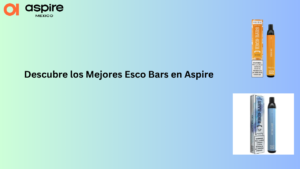
In the world of industrial and commercial construction, material selection is crucial to ensure durability, efficiency, and longevity. One material that has gained considerable attention for its unique properties and versatile applications is PP (Polypropylene) glass lined sheets. This article delves into what makes PP Glass-Lined Sheet Suppliers a preferred choice, explores their benefits and applications, and provides guidance on maintenance. Additionally, we will address some frequently asked questions to give you a complete understanding of this innovative material.
What Are PP Glass Lined Sheets?
PP glass lined sheets are composite materials made from polypropylene (PP) combined with glass fibers. This combination results in a sheet that boasts enhanced strength, durability, and chemical resistance. The polypropylene matrix provides flexibility and impact resistance, while the glass fibers contribute to rigidity and structural stability.
Key Features of PP Glass Lined Sheets
- High Strength-to-Weight Ratio: PP glass lined sheets offer an excellent strength-to-weight ratio, making them ideal for applications where both strength and lightness are required.
- Chemical Resistance: The glass fibers embedded in the polypropylene matrix provide superior resistance to a wide range of chemicals, including acids, bases, and solvents.
- Temperature Tolerance: These sheets can withstand high temperatures, making them suitable for use in environments with fluctuating or extreme temperatures.
- Durability: The combination of polypropylene and glass fibers results in a durable material that resists wear and tear, reducing the need for frequent replacements.
- Corrosion Resistance: PP glass lined sheets are highly resistant to corrosion, making them ideal for use in harsh environments and applications where exposure to corrosive substances is common.
Benefits of PP Glass Lined Sheets
1. Enhanced Structural Integrity
The combination of polypropylene and glass fibers creates a material with excellent structural integrity. This makes PP glass lined sheets suitable for applications where strength and rigidity are essential, such as in the construction of tanks, vessels, and pipes.
2. Long-Term Cost Efficiency
Due to their durability and resistance to wear, PP glass lined sheets offer long-term cost efficiency. They have a longer lifespan compared to many alternative materials, reducing the frequency of replacements and maintenance costs.
3. Versatile Applications
PP glass lined sheets are versatile and can be used in a variety of industries, including chemical processing, water treatment, and construction. Their resistance to chemicals and temperature fluctuations makes them suitable for a wide range of applications.
4. Low Maintenance Requirements
The low maintenance requirements of PP glass lined sheets are a significant advantage. Their resistance to corrosion and chemical damage means that they do not require frequent upkeep, allowing for a hassle-free operation.
5. Lightweight Yet Strong
Despite their high strength, PP glass lined sheets are relatively lightweight. This makes them easier to handle and install, reducing labor and transportation costs associated with heavier materials.
Applications of PP Glass Lined Sheets
1. Chemical Processing
In chemical processing plants, PP glass lined sheets are used to line tanks, pipes, and reactors to protect against chemical attacks. Their chemical resistance ensures that the infrastructure remains intact and operational even when exposed to aggressive substances.
2. Water Treatment Facilities
PP glass lined sheets are employed in water treatment facilities for lining tanks and channels. Their resistance to corrosion and chemicals helps in maintaining the integrity of the equipment and ensuring the effective treatment of water.
3. Construction Industry
In the construction industry, PP glass lined sheets are used for cladding and lining applications. Their durability and strength make them suitable for both interior and exterior applications, including wall panels and roofing.
4. Industrial Storage
For industrial storage solutions, PP glass lined sheets are used to line storage tanks and containers. Their resistance to corrosion and high-strength properties make them ideal for storing various substances, including chemicals and corrosive materials.
5. Piping Systems
PP glass lined sheets are used to line and protect piping systems from chemical and thermal damage. Their durability ensures that the piping remains functional and free from leaks or degradation over time.
How to Install PP Glass Lined Sheets
1. Preparation
Before installation, ensure that the surface where the PP Glass-Lined Sheet Installation will be applied is clean, dry, and free of contaminants. Proper surface preparation is crucial for achieving optimal adhesion and performance.
2. Cutting and Shaping
Cut the PP glass lined sheets to the required size and shape using appropriate tools. Ensure accurate measurements and cuts to fit the sheets precisely into the intended area.
3. Adhesion
Apply the adhesive or bonding agent recommended by the manufacturer to the surface where the sheets will be installed. Follow the manufacturer’s instructions for the adhesive application to ensure a secure bond.
4. Placement
Carefully place the PP glass lined sheets onto the prepared surface, aligning them as required. Press the sheets firmly to ensure proper adhesion and eliminate any air bubbles or gaps.
5. Inspection
After installation, inspect the sheets to ensure proper alignment and secure adhesion. Check for any defects or issues that may affect the performance of the installed sheets.
Maintenance Tips for PP Glass Lined Sheets
1. Regular Inspections
Conduct regular inspections of PP glass lined sheets to check for any signs of damage or wear. Look for issues such as cracks, blisters, or delamination that may require attention.
2. Cleaning
Clean PP glass lined sheets using a mild detergent and water to remove any dirt or debris. Avoid using abrasive cleaners or solvents that may damage the surface of the sheets.
3. Repairs
If any damage is detected, perform repairs promptly to prevent further issues. Follow the manufacturer’s recommendations for repair methods and materials to ensure proper restoration.
4. Avoid Harsh Chemicals
While PP glass lined sheets are resistant to many chemicals, it is still advisable to avoid exposure to harsh or unknown chemicals that may affect their performance. Follow safety guidelines for handling and using chemicals.
Conclusion
The PP Glass-Lined Sheet Price represent a versatile and durable solution for various industrial and commercial applications. Their unique combination of polypropylene and glass fibers provides enhanced strength, chemical resistance, and temperature tolerance. By understanding their features, benefits, and proper maintenance, you can make informed decisions about incorporating PP glass lined sheets into your projects. Whether you are involved in chemical processing, water treatment, construction, or industrial storage, PP glass lined sheets offer a reliable and cost-effective material choice to meet your needs.
Frequently Asked Questions (FAQs)
1. What is the primary advantage of using PP glass lined sheets?
The primary advantage of PP glass lined sheets is their combination of high strength, durability, and resistance to chemicals and temperature fluctuations. This makes them suitable for a wide range of industrial and commercial applications.
2. Are PP glass lined sheets suitable for outdoor use?
Yes, PP glass lined sheets are suitable for outdoor use due to their resistance to weather conditions, UV radiation, and temperature changes. They are commonly used in applications where outdoor exposure is a factor.
3. How do PP glass lined sheets compare to other lining materials?
Compared to other lining materials, PP glass lined sheets offer superior chemical resistance, durability, and temperature tolerance. They are also relatively lightweight and easy to handle, which can reduce installation and transportation costs.




